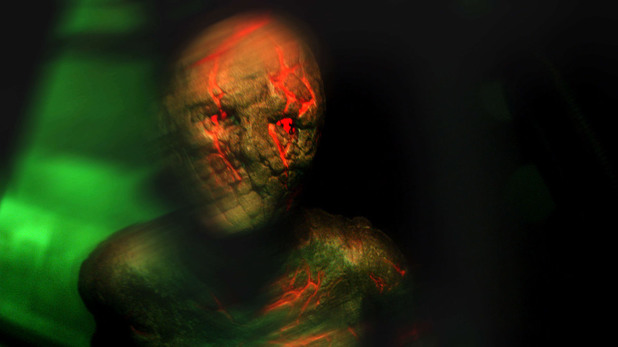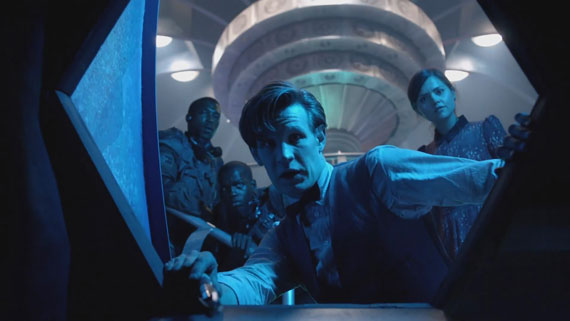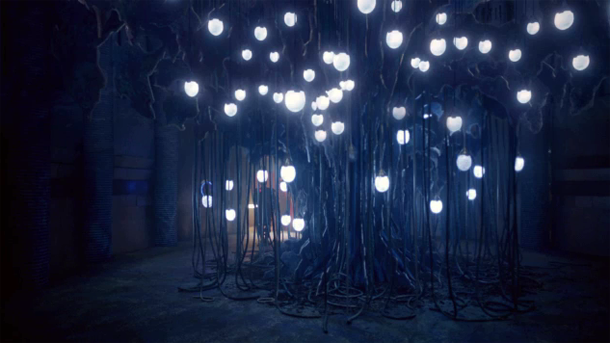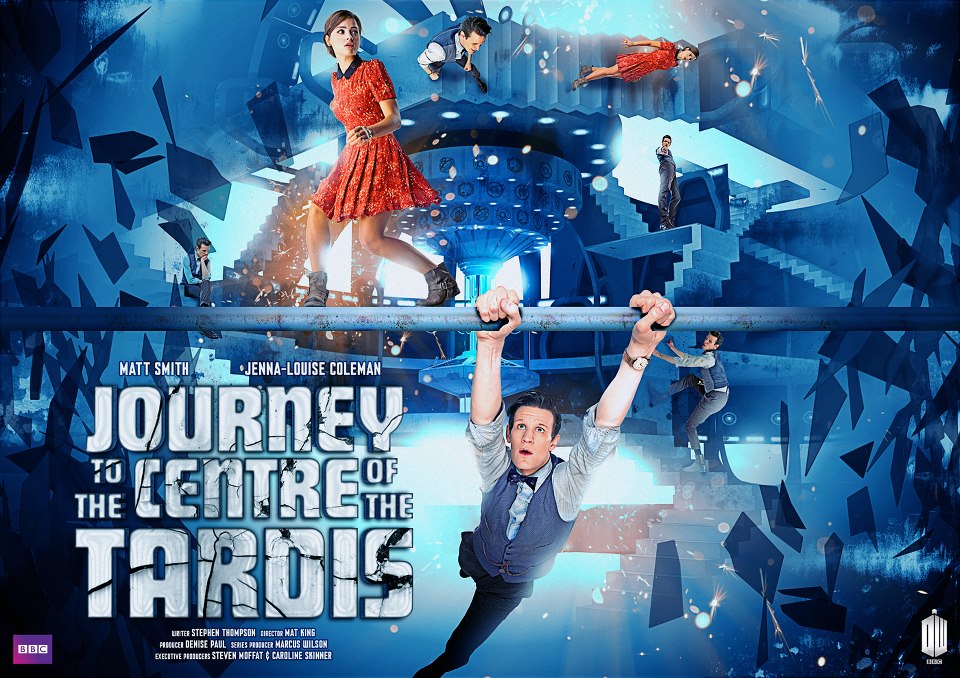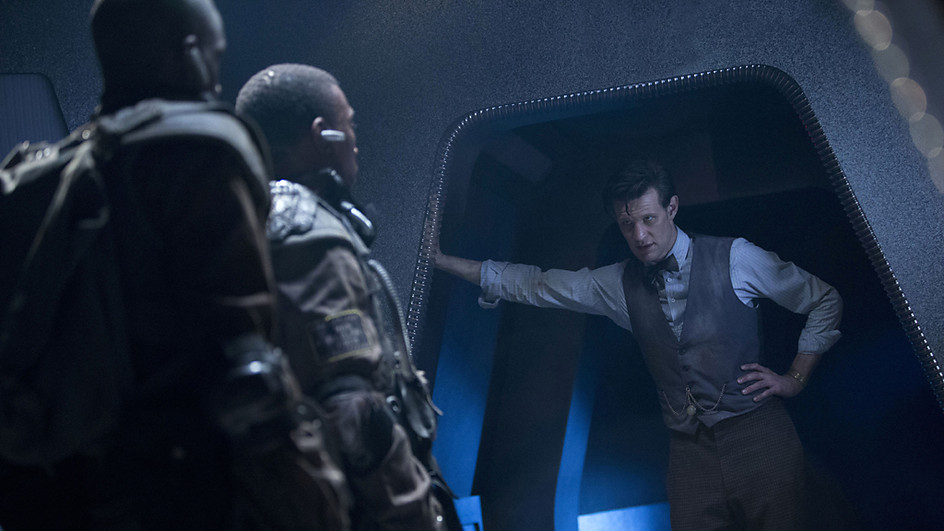 As we count down to the Series 7 finale this weekend, James Willets continues his reviews of the last half-season.
As we count down to the Series 7 finale this weekend, James Willets continues his reviews of the last half-season.
Don’t forget to download our new Moffat Bingo cards before Saturday!
At what point does a TV series reach a critical mass of recycled plotlines and a bloated parody of itself, reflecting enough of the bits that you used to long for to make you hope that it’ll be good, but never quite managing to regurgitate enough substance to satisfy? Because I think Doctor Who has reached that point.
It’s always been a pretty self-referential show, but we’ve reached a point of inherent smugness under Moffat; off-puttingly self-satisfied and content to just fill in endings, middles, story-arcs and plot holes with a desparate surge toward ‘timey-wimey’, as though that was never a joke in the first place, but an actual answer.
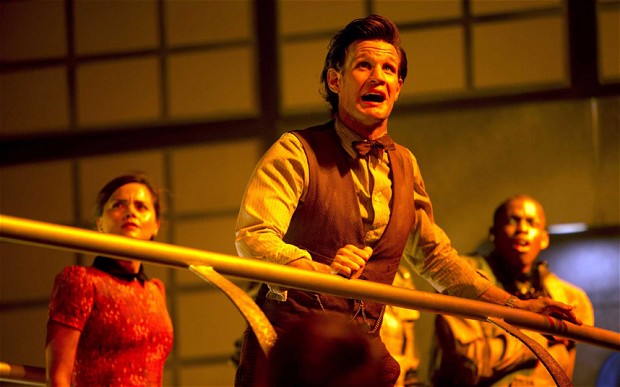 Because here we get the most navel gazing of adventures, a runaround inside the TARDIS that features bad guys who are time displaced future-selves, and a plot resolution that involves stopping past selves from starting the plot.
Because here we get the most navel gazing of adventures, a runaround inside the TARDIS that features bad guys who are time displaced future-selves, and a plot resolution that involves stopping past selves from starting the plot.
I think that this kind of genre awareness is what was intended, and there’s a part of me that loves the fact that an episode about the internal workings of the TARDIS is just an exercise in playing with perceptions of time. After all, nearly every episode of Misfits, a series that I love, involved bonkers time travel to stop the latest near-miss from ever actually happening. I didn’t resent it then.
So why is it that, whenever Doctor Who tries to grapple with time travel and its consequences, it just turns into a poorly written ideas-broth with half-digested thoughts, outlines and plot strands surfacing, sinking and disappearing without trace?
Maybe it’s a problem with the way the format of time travel has changed within the show. I mentioned in my review of ‘The Angels take Manhatten’ that, for a programme about a guy in a time machine, Doctor Who has been really wary of letting loose with time travel. The TARDIS is simply a vehicle to get the Doctor to the plot; it’s there to ensure we arrive in the right place and time with an adequate supply of period specific clothing and a base to retreat to if things get really bad.
But more and more we’re seeing the mechanics of time travel explored by Moffat and other writers, and in every case it shows why that shouldn’t happen.
It’s really hard to portray time travel on TV, in part because the trappings of the medium mean you have to show a linear progression of plot. This happens, so that this can happen, and then everything is wrapped up. If you mess with that you get Memento, and whilst that’s a great film, it’s not a story structure that’s mass audience friendly.
I’m not simply a casual fan, I’m invested in Doctor Who, but there are times when I realise that what I really want is a show that doesn’t feel the need to mess around with the time space continuum and just tells a good story. This episode is not what I am looking for.
There’s some dodgy stuff from the off and, at the risk of coming over all granola-eating, Guardian reading, left-wing PC Brigadier; is it really a good idea to make the first three black character to appear in the show the bad guys? Doesn’t that just reinforce some pretty awful stereotypes that Doctor Who, of all shows, should be trying to move away from? I recognise this may seem a really nit-picky point to some but, in a half-series in which the only non-white charcters we’ve seen have been the family who employ Clara, the appearance of three black characters shouldn’t be in the form of Evil Pirate, Idiot Strongman and Man Who Thinks He’s A Robot.
As antagonists go, the scrap collectors may be amongst the most stupid and petty villians in new-Who. If ever an episode has portrayed more self-serving people willingly sabotaging their own chances of staying alive, I’ve missed it. In a situation where they have a time limit to locate Clara or get blown up, why would they stop to dismantle bits of the TARDIS as they go?
In taking the time to think about that, you’ve spent more on it than the writers did, because they were too busy arse-writing an episode that could abort itself before it had any consequences and thus undermine the one piece of positive plot-advancement that was served up, extending this season’s slow-burn arc by another three episodes. Ho hum.
Clara is starting to grow on me a little bit more, but she still hasn’t really done anything to make me care too much about her status or secrets. I’m more worried that the whole thing is going to descend into timey-wimey baloney that satisfies nobody and doesn’t even make that much sense if you stop to consider it.
For an episode about journeying to the centre of the TARDIS, it’s the sheer lack of scale that rankles the most. Those few flashes of the interior of the ship that show the complexity and beauty and strangeness of Gallifreyan technology are wonderful but they are few and far between, and broken up by the need for action. Had this simply been an exploration adventure, without the need for future lava-men or even double-crossing space pirates, it could have been something special. Instead it was something we’ve seen, off and on, again and again over the last few seasons.

